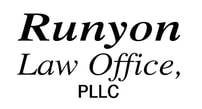NH's Real Estate Tax Explained
First of all, being the non-conformists we are, New Hampshire real estate taxes are based on an April 1 to March 31 year. Just think of it as a "mud season" tax year and you'll be able to remember those dates. The first tax bills usually arrive about June 1, for payment within 30 days, but no one knows what the real taxes will be at that point, so those first installments are half of the total you paid last year. The final tax rates aren't set until the Fall, so the second half bills that arrive in November, for payment in December, make the necessary adjustments to what was paid the first time around. If taxes increase a bit each year, as they tend to do (say, because the town needs a new cruiser), then the second half bill will be a little more than the first installment.
Alright, so what if the assessment of your property is just way more than you think it should be; what can you do about it? Well, the first thing to do is to check the town's information about your homestead to make sure it's accurate - one estimate I received is that as many as two-thirds of properties have assessments based on factual errors that could be costing you serious money. I mean, If they've got you down for 4 bedrooms and 3 baths, but you only have 3 and 2, then you need that error corrected in order to pay what you should. But you won't see that information on your tax bill itself. You either need to march down to the tax collector's office, or check the records online if your town makes the information available that way. In Peterborough those records can be accessed from the town's website, or you can call Leo Smith in the tax office at 924-8000, ext. 132.
Then, what other factors affect your overall assessment? Well, I'm sorry to inform you that if you work really hard to keep your home freshly painted and nicely landscaped. you're not only going to be thanked by your neighbors, but also by the tax collector, because those efforts are likely to be rewarded with a higher assessment than if you let all the weeds grow and the paint flake off. Also, if you cut some trees so you can see Mount Monadnock or get a nice view of the Contoocook, your assessment will surely be inflated for those breath-taking intangibles, too. Likewise, if the inside of your home looks like a recent shoot for Architectural Digest instead of a hoarder's hovel, you'll get bonus points on your assessment for those efforts, as well. That all makes sense, though, because you'd get more for your place on the open market, too, and fair market value is what the assessor is going for.
People also wonder about the impact of additions and improvements. If you pull a building permit for a $10,000 kitchen overhaul, that won't necessarily add $10,000 to the total value. The assessor will come out to take a look, and the decision will be based primarily on the square footage involved and the quality of the workmanship and components rather than what you wrote on the permit application. Additions of bedrooms or bathrooms seem to impact assessments the most, as they probably would the selling price. If it's any consolation, the assessors do have tables and charts for these determinations, so they're not just ballparking it.
OK, after all that, what if the bottom line is that you think your assessment is still way too high? The key thing to remember is that it's not the total value that matters; it's how that total compares to what the assessors think about properties comparable to yours. If they're coming up with the same approximate values for your friends' estates of the same size and condition, also with bonus features like views, and tucked into quiet leafy neighborhoods, then you're probably all in the same expensive tax boat. If your pals seem to be getting preferential treatment, however, then you need to marshall your facts and get your abatement application on file with the town by March 1 - or you'll just have to grumble, write that big check, and wait another year.
Posted 05/23/2014 - Tax Planning
